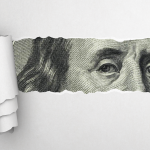The International Agency for Research on Cancer (IARC) was founded with a noble goal - to put an end to environmental claims based on weak observational anecdotes, like Rachel Carson claiming that she knew people who sprayed DDT in their basement and died (1) or that cranberries were going to poison everyone.
Policy & Ethics
Unbeknownst to David Seidemann, a Brooklyn College geology professor and ACSH scientific advisor, he was placed on a "hit list" by the academic politically-correct mafia. In an article for Minding the Campus, Prof. Seidemann recalls a chilling tale in which he was investigated by the administration for alleged misconduct.
French philosopher Joseph de Maistre is credited with saying, "Every country has the government it deserves." That may serve as a stinging rebuke to those of us who dwell in 21st Century America, where partisan gridlock, mutual distrust, and general nastiness have culminated in an election that has made history for all the wrong reasons.
How should scientists respond to the rising tide of anti-scientific sentiment in the world? The backlash against modern technology is widespread: Protests against genetic engineering, vaccines and "chemicals" are just some of the areas of concern. What can scientists do to address this problem?
A recent paper published in a U.K. medical journal claimed that endocrine-disrupting chemicals cost the U.S. $340 billion, which represents more than 2 percent of our GDP. Unfortunately, like many other headline-generating studies, this paper is based on flawed science.
Critics of amending existing contact lens legislation, to protect patient safety, are deceptively misleading the public. In no way does a 2004 bill impede a patient’s ability to order contact lenses from an online vendor. Alas, the free market is safe.
It's long been known in the United States that anti-vaccine sentiment comes down along political lines the same way climate change does. Anti-vaccine sentiment also correlates strongly with anti-agriculture and anti-energy beliefs. But the rationalization among most journalists who didn't want to recognize such uncomfortable truths was that as long as their political elites were not saying it, it didn't count.(1)
The Disneyland measles outbreak in January 2015 prompted several states to tighten their vaccine exemption laws. As for Michigan, the latest CDC data shows that, for the 2015-16 school year, the exemption rate among its kindergartners fell significantly, from 5.3 percent to 3.6 percent. Here's two reasons why the state's new policy is apparently working.
Michael Pollan, food activist and journalist, is the proverbial man trapped in the past. His latest piece for The New York Times criticizes the Obama administration for not catering to his bizarre beliefs about how food production actually works. And along he tries to smear ... the American Council's president, and you.
As many as half of lab tests ordered may not be necessary, and cutting back on them can not only minimize the "ouch factor," but it can also lower medical costs. Some research has been done in this area, producing some eye-opening conclusions.
Our public health system has a very bad habit of fighting the last war. Instead, it's best to prepare for exotic diseases before they become uninvited guests. Will policymakers apply that lesson to another potential troublemaker: Chagas disease?
We all have to die. Those of us who process that reality ahead of time might be lucky enough to have a small say over the time and location of our unavoidable demise. And in the process, we may help society as a whole come to terms with death. That is why we applaud the increase in deaths that are occurring at hospices.










